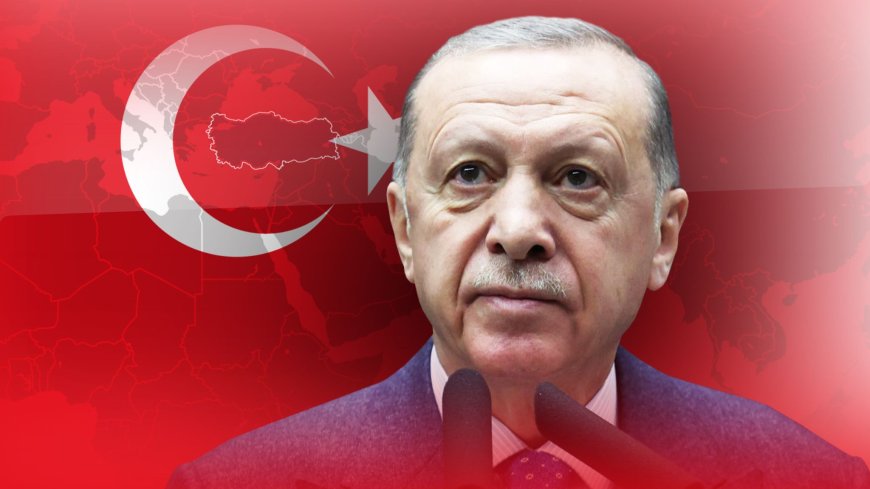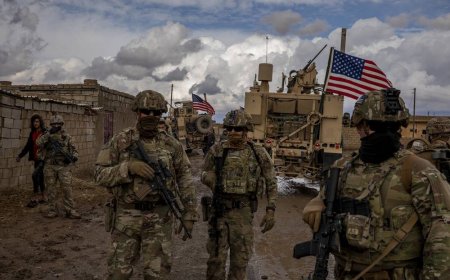Sultan's Grand Design: How Turkey’s Despot is Reshaping the Middle East
Recep Tayyip Erdoğan; Turkey’s most long-serving and divisive political figure; has indelibly shaped his era with sweeping efforts to redefine the country’s constitutional and political structures. His tenure has been marked by a relentless drive to centralize authority profoundly altering Turkey’s democratic framework and raising concerns both domestically and internationally.

By: A. Mahdavi
Recep Tayyip Erdoğan; Turkey’s most long-serving and divisive political figure; has indelibly shaped his era with sweeping efforts to redefine the country’s constitutional and political structures. His tenure has been marked by a relentless drive to centralize authority profoundly altering Turkey’s democratic framework and raising concerns both domestically and internationally.
At the core of this transformation was the 2017 shift from a parliamentary to a presidential system—a seismic overhaul that concentrated unprecedented power in the office of the president. This moment epitomized Erdoğan’s broader strategy of consolidating control under the pretext of fostering stability and strength though critics argue it has systematically undermined democratic principles and jeopardized regional security.
Erdoğan’s recent constitutional reform initiatives reflect a convergence of personal ambition political pragmatism and a contentious vision for Turkey’s future. While he frames these efforts as essential steps toward stability and resilience skeptics perceive them as part of a calculated agenda to entrench authoritarian rule. These moves have consistently marginalized dissent curtailed press freedoms and politicized the judiciary eroding the democratic institutions that once safeguarded Turkey’s pluralistic society.
Central to Erdoğan’s domestic policies is his intricate and often contradictory approach to Turkey’s Kurdish population. Early in his rule Erdoğan sought to win Kurdish support by promising cultural recognition and initiating peace talks including the 2013-2015 process aimed at resolving the protracted conflict with the Kurdistan Workers’ Party (PKK). However the collapse of these negotiations marked a sharp pivot toward militarized hostility further deepening divisions between the government and Kurdish communities. Despite this antagonism the Kurds remain a pivotal political constituency whose electoral influence Erdoğan cannot afford to overlook. This paradox has forced Erdoğan into a pragmatic yet opportunistic balancing act—oscillating between hardline policies and strategic overtures such as fielding pro-Kurdish candidates and invoking conservative Islamic values to appeal to segments of the Kurdish electorate. Yet these efforts are widely regarded as superficial maneuvers rather than genuine attempts at reconciliation.
Erdoğan’s exploitation of the Syrian refugee crisis further illustrates his political acumen. Hosting the world’s largest population of Syrian refugees Turkey has used this humanitarian challenge as both a domestic and international bargaining chip. Initially Erdoğan’s open-door policy was portrayed as a noble expression of Turkey’s historical and religious ethos. Over time however this narrative has been leveraged to stoke nationalist sentiment with Erdoğan positioning himself as a protector against external threats while using the refugee issue in negotiations with the European Union. Domestically this strategy has become increasingly controversial as critics accuse Erdoğan of prioritizing refugees over Turkish citizens and manipulating their plight for political gain. The promise of refugee repatriation has become a recurring theme in Erdoğan’s rhetoric aimed at appeasing domestic frustrations while maintaining his political leverage.
Overlaying Erdoğan’s domestic strategies is his neo-Ottoman vision an ideological framework that seeks to reassert Turkish influence across former Ottoman territories. Domestically this vision manifests in the promotion of conservative Islamic values and a narrative of Turkey’s resurgence as a great power. Internationally it drives ambitious and often provocative policies in the Middle East North Africa and the Eastern Mediterranean. Erdoğan’s interventions in Syria Libya and Iraq along with assertive maritime stances underscore this neo-Ottoman aspiration. While this approach resonates with Erdoğan’s nationalist and Islamist base it has also heightened regional tensions strained alliances and drawn international condemnation. The pursuit of neo-Ottoman ambitions has not only escalated the risk of conflict but has also deepened nationalist and sectarian divisions undermining prospects for regional stability.
The implications of Erdoğan’s policies for Turkey’s future are profound and deeply concerning. His constitutional reforms and centralization of power threaten to entrench authoritarianism stifling political diversity and exacerbating societal divisions. The marginalization of dissenting voices coupled with the erosion of democratic norms risks leaving Turkey’s political landscape devoid of meaningful opposition. Moreover Erdoğan’s opportunistic engagement with Kurdish communities and his exploitation of the refugee crisis underscore a governance model driven by short-term expediency rather than principled leadership. While these tactics may yield tactical victories they sow the seeds of long-term instability threatening to fracture Turkey’s social fabric.
Regionally Erdoğan’s neo-Ottoman ambitions represent a perilous gamble. While they bolster Turkey’s standing as a regional power they also provoke resistance and countermeasures from neighboring states. This antagonistic posture risks escalating conflicts undermining Turkey’s security and further destabilizing an already volatile region. Erdoğan’s rhetoric and actions have not only alienated allies but have also emboldened adversaries creating a geopolitical landscape fraught with peril.
In conclusion Erdoğan’s political trajectory embodies a volatile mix of ambition pragmatism and ideological fervor. His efforts to reshape Turkey’s constitutional order manipulate Kurdish dynamics and exploit the refugee crisis underscore a relentless pursuit of power at the expense of democratic principles and social cohesion. The neo-Ottoman dream seductive to Erdoğan’s base carries the grave risk of reinforcing authoritarianism and inflaming regional tensions. As Turkey navigates this critical juncture the consequences of Erdoğan’s policies will resonate far beyond its borders shaping the stability and future of the region for years to come.













































